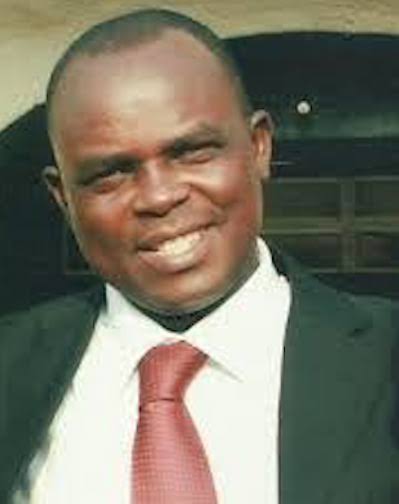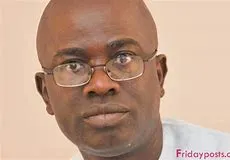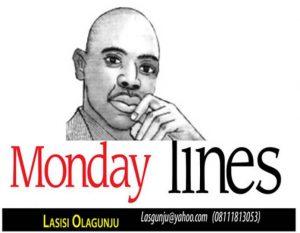By Bola Bolawole
turnpot@gmail.com 0807 552 5533
The allegations – or do we call them the road to prosperity – that human rights activist and legal luminary, Comrade Femi Falana, has forcefully pushed into the public domain in the past one or two weeks are too weighty to be ignored by the Bola Ahmed Tinubu administration. It is like you have a problem and someone says not just that “I have a solution” but “this is the solution!” You either try his solution or tell us why his touted solution is not the solution. Falana’s argument is that subsidy should first be withdrawn from the rich; that if and when this is done, there will be more than enough funds in the kitty to fund government activities and there would be no need to inflict more pain on the long-suffering Nigerian masses who are the ones always being called upon to tighten their belt. Falana also posits that there is so much corruption and wastages allowed the rich and powerful; that if the leakages in the system are plugged and the low-hanging fruits, which he enumerated, are brought into the basket by the government with little or no effort – except the political will and honesty of purpose to act against the concerned members of the ruling class – then, there will be no need to multiply the misery and sorrow of hapless Nigerians. There is no denying the fact that Tinubu’s “medicine” in his first few weeks in office has monumentally increased the suffering of the mass of our people – and we are still counting!. Whether or not this is desirable in the short run as some have argued is beside the point. Are there alternatives to the excruciating pain in the land? Falana says there are! Let’s listen to him! If someone says he knows the road to our collective prosperity, we should follow in his footsteps unless someone can prove to us that his road is no road or that there is a better, faster and pothole-free road to our collective prosperity as a country.
Titled “THE REAL SUBSIDIES ARE NOT FOR THE POOR BUT FOR THE RICH”, Falana listed 22 items to justify his argument that the government has ignored low-hanging fruits to gratify the rich while inflicting avoidable hardship on the poor. Hear him:
“Globally, subsidies, whether for food, transportation, energy or housing, are part of good governance. So, the issue is not subsidies but who benefits from them. In Nigeria, subsidies are primarily of the rich, by the rich and for the rich. I will highlight a few, how they are being manipulated and how huge sums of money can be recovered not just to subsidize fuel but also provide funds for development.
- Additional Revenue of $1.5 billion payable to Federation Account: In July 2015, I drew the attention of the Federal Government to the fact that the 15-year fiscal incentives given to the oil and gas companies operating under the Deep Offshore and Inland Basin Production Sharing Contracts Act had expired in June 2014. When the Federal Government ignored our request, we drafted a Bill for the amendment of the law. The Bill, which was adopted and sponsored by Senator T. Orji, scaled the first reading in the Senate but was not passed before the dissolution of the 8th National Assembly. However, the same Bill was modified and passed by both houses of the 9th National Assembly and assented to by President Muhammadu Buhari on November 4, 2019. In justifying the passage of this Bill, Senate President Ahmed Lawan announced that the new law would increase the revenue of the nation by not less than $1.5 billion per annum.
- Outstanding royalties of $62 billion. In campaigning for the amendment of the Deep Offshore and Inland Basin Production Sharing Contracts Act, I requested the Federal Government to collect outstanding royalty payable by the International Oil Companies under the Act. The Federal Government admitted that the country had lost a whopping sum of $60 billion but my demand for the collection of the huge fund was ignored. The governments of Rivers, Akwa Ibom and Bayelsa states then approached the Supreme Court which, on October 20, 2018, ordered the Federal Government to collect the royalty for the past 18 years. The Federal Government confirmed that the outstanding royalty withheld by the IOCs is $62 billion but has not collected it.
- $7 billion fixed in 14 banks: Sometime in 2006, the CBN yanked off $7 billion from the nation’s foreign reserves and fixed it in 14 commercial banks in Nigeria. The deposit and the accrued interests were not recovered from the banks. When I reported the matter to one of the anti-graft agencies, the CBN claimed that it had forgiven “the forbearance”.
- Sale of Heritage Bank, Keystone Bank, Union Bank and Polaris Bank by CBN: The CBN took over Heritage Bank, Keystone Bank, Union Bank and Polaris Bank, spent trillions of Naira to revitalise them only to turn round to sell them under the table. For instance, CBN invested N1.3 trillion in Polaris Bank but sold it for N50 billion!
- Theft of Crude oil: The Nigerian Extractive Industries Transparency Initiative (NEITI) has revealed that Nigeria lost 619.7 million barrels of crude oil valued at N16.25 trillion ($46.16 billion) to crude oil theft between 2009 and 2020. Immediate past National Security Adviser, General Babagana Monguno, said that Nigeria might lose $23 billion in 2023 to crude oil theft.
- Theft of gold and other solid minerals: The theft of the nation’s mineral resources is not limited to crude as solid minerals are equally smuggled out of the country by highly-placed criminal elements. Former Minister of State for Mines and Steel Development, Dr Uche Ogah, recently disclosed that private jets are being used by the rich for gold smuggling in Nigeria. He stated this at an investigative hearing on $9 billion annual loss to illegal mining and smuggling of gold organised by the Senate Committee on Solid Minerals, Mines, Steel Development and Metallurgy. During his contribution at the hearing, Senator Orji Uzor Kalu disclosed that Nigeria lost close to $54b from 2012-2018 due to illegal smuggling of gold.
- AMCON is owed N5.4 trillion by the rich: A few years ago, commercial banks were going to collapse due to toxic loans taken by members of the ruling class. To prevent the impending economic doom, the Federal Government set up the Asset Management Corporation of Nigeria (AMCON) to buy off the loans with trillions of Naira provided by the CBN. AMCON has not been able to recover the loans of N5.4 trillion from about 370 corporate bodies.
- Indiscriminate import duty waivers: A few privileged members of the business community buy dollars at an official rate while they are allowed to import all manners of goods into the country. In the last five years, import duties worth N16 trillion were waived for them.
- N10 trillion diverted by CEOs of Government enterprises: The Buhari government revealed on December 19, 2018 that government enterprises, including the CBN, owed about N10 trillion in unremitted operating surpluses as at August 2018. The details were provided.
- N6 trillion unpaid ground rents by buyers of Government properties: On March 29, 2023, the Senate noted that since 1992, over two million houses across the 36 states and the FCT had been built and allocated to beneficiaries by the federal government without evidence of payment of ground rent on the properties. Consequently, the Senate set up an Ad Hoc Committee to recover over N6 trillion unpaid ground rents from property owners in the country.
- Stolen crude oil valued at $29.17 billion: A group of lawyers engaged by NIMASA confirmed that 60.2 million barrels of crude oil valued at $12.7 billion was stolen and illegally exported to the United States of America between January 2011 and 2014. This has not been recovered. Also, the House of Representatives investigated and confirmed that undeclared crude oil worth $17 billion was exported to global destinations during the same period. The affected companies are known but the government seems to lack the will to bring them to book and recover the sum of $29.7 billion, being the value of the stolen crude.
- Oil theft of N16.25 trillion: The Nigerian Extractive Industries Transparency Initiative (NEITI) revealed that between 2009 and 2020, Nigeria lost 619.7 million barrels of crude oil valued at N16.25 trillion ($46.16 billion) to oil theft. The security forces have not been able to stop the stealing and smuggling of crude oil from Nigeria. However, Tantita Security Services Nigeria Ltd (TSSNL), a private company, discovered pipelines through which crude oil was being diverted from a 40,000 barrel per day Forcados pipeline to the high seas for export. The indicted oil companies, including an IOC involved in this grand theft, are yet to be prosecuted.
Falana listed 22 items; we have picked only 12 here. Interested? The Tinubu administration should reach out to the activist. If you ask me, I will say it is better to go after low-hanging fruits than go cap-in-hand to International Finance Capital in search of more loans. Are we not indebted enough!
- Former Editor of PUNCH newspapers, Chairman of its Editorial Board and Deputy Editor-in-chief, BOLAWOLE was also the Managing Director/ Editor-in-chief of THE WESTERNER newsmagazine. He writes the ON THE LORD’S DAY column in the Sunday Tribune and TREASURES column in New Telegraph newspaper on Wednesdays. He is also a public affairs analyst on radio and television.
















